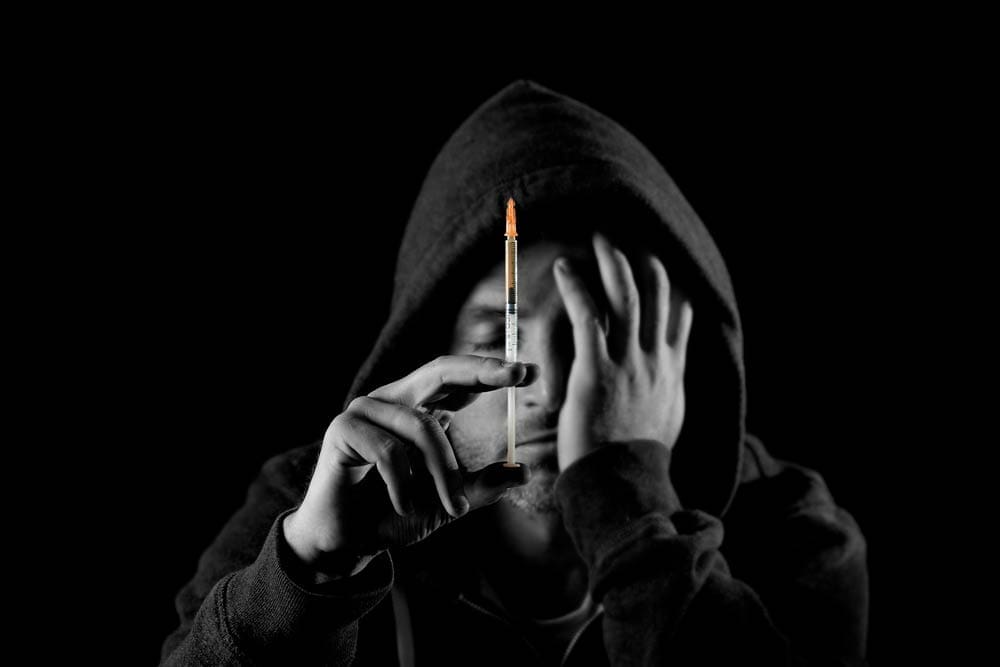Table of Contents
Does Prescription Opioid Abuse Lead to Heroin Addiction?
Many men and women addicted to opiates started abusing prescription opioids before moving on to heroin, a cheaper and more powerful alternative.
Opioids are a class of drugs that include prescription painkillers like oxycontin, hydrocodone, and illicit opiates like heroin. What many fail to realize is that heroin addiction very commonly stems from an initial prescription painkiller addiction – this was especially true when it came to a time when painkillers were more freely prescribed. When they first hit the pharmaceutical market in the mid-1990s, painkillers were prescribed at extremely high rates. Medical professionals were told they were safe to prescribe, so they began handing them out for all pain-related disorders, from mild and temporary to severe chronic pain.
Many Prescription Painkiller Addicts Turn to Heroin
Those prescribed these medications began developing substance use disorder, and many eventually developed addictions. Over time government officials began recognizing that prescription painkillers were causing many serious issues, including opioid-related overdose deaths. As a result, they cracked down on distribution, letting prescribing physicians know that they could only prescribe the potent and habit-forming medications if necessary.
While this solved part of the issue, rates of prescription addiction and overdose began to decline. It did, however, disregard an entirely new issue. Those who had already developed opioid addictions did not simply seek help to get their addictive disorders under control. Instead, many turned to heroin, a cheaper and more readily available alternative to painkillers.
Prescription Opioids and Heroin Addiction
The symptoms of prescription opioid addiction and heroin addiction are very similar and include the following:
- An inability to stop using despite repeated attempts to do so
- Defensiveness and irritability when close friends and family members bring up your drug use or suggest that you might have a problem with prescription painkillers or heroin
- Physiological changes, such as weight loss or weight gain, persistent fatigue, or a noticeable lack of attention to personal hygiene
- A lack of motivation and a lack of interest in hobbies and activities that were previously enjoyed
- An increased need for privacy and separation from friends and family members
- Secretive and somewhat suspicious activity
- Repeatedly missing personal obligations and failing to complete seemingly menial daily tasks
- Repeatedly use more of the substance than was intended
- Continuing use despite serious interpersonal consequences
- Legal issues, financial issues, problems at work or school
- Health-related complications
- Resorting to illegal activities to support the habit
- An increase in risk-taking behaviors
If you or someone you know has been suffering from prescription painkiller addiction, seeking professional help immediately is crucial. If professional help is not sought, the addiction could easily escalate into heroin abuse. Of course, if you or someone you know has been suffering at the hands of heroin abuse or dependence disorder, seeking help is also essential because the disorder could easily lead to drug-related overdose, death, or other serious health-related complications.
Absolute Awakenings and Heroin Addiction Recovery
At Absolute Awakenings, we understand how difficult recovering from heroin addiction can be. Out of all the chemical substances in circulation, heroin is one of the most addictive and hardest to quit long-term. Sadly, many individuals who undergo treatment for heroin addiction end up relapsing before they truly give themselves a shot at the ins and outs of recovery – this is typical because the symptoms of post-acute withdrawal are so severe. These symptoms include intense psychological cravings, mild depression and anxiety, sleep-related issues, general discomfort, and long-term gastrointestinal issues, namely chronic constipation. At Absolute Awakenings, we help treat all these symptoms and more in our state-of-the-art treatment facility. For more information, give us a call today. We look forward to speaking with you and getting you or your loved one on the road to long-term heroin addiction recovery as quickly as possible.
References
- Cohen B, Ruth LJ, Preuss CV. Opioid Analgesics. In: StatPearls. StatPearls Publishing; 2022. Accessed January 17, 2023. http://www.ncbi.nlm.nih.gov/books/NBK459161/
- Jahan AR, Burgess DM. Substance Use Disorder. In: StatPearls. StatPearls Publishing; 2022. Accessed January 17, 2023. http://www.ncbi.nlm.nih.gov/books/NBK570642/
- Huecker MR, Koutsothanasis GA, Abbasy MSU, Marraffa J. Heroin. In: StatPearls. StatPearls Publishing; 2022. Accessed January 17, 2023. http://www.ncbi.nlm.nih.gov/books/NBK441876/
Absolute Awakenings Treatment Center Editoral Guideline
At Absolute Awakenings, we take information integrity seriously. We have dedicated our resources to ensure that all content published to our blog is medically sound. As such, all content on our blog has been thoroughly reviewed by a doctorate level clinician such as a Medical Doctor, or Psy.D, so that you can trust all of the data we publish.







